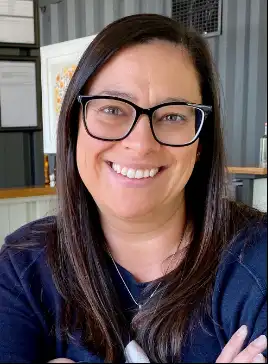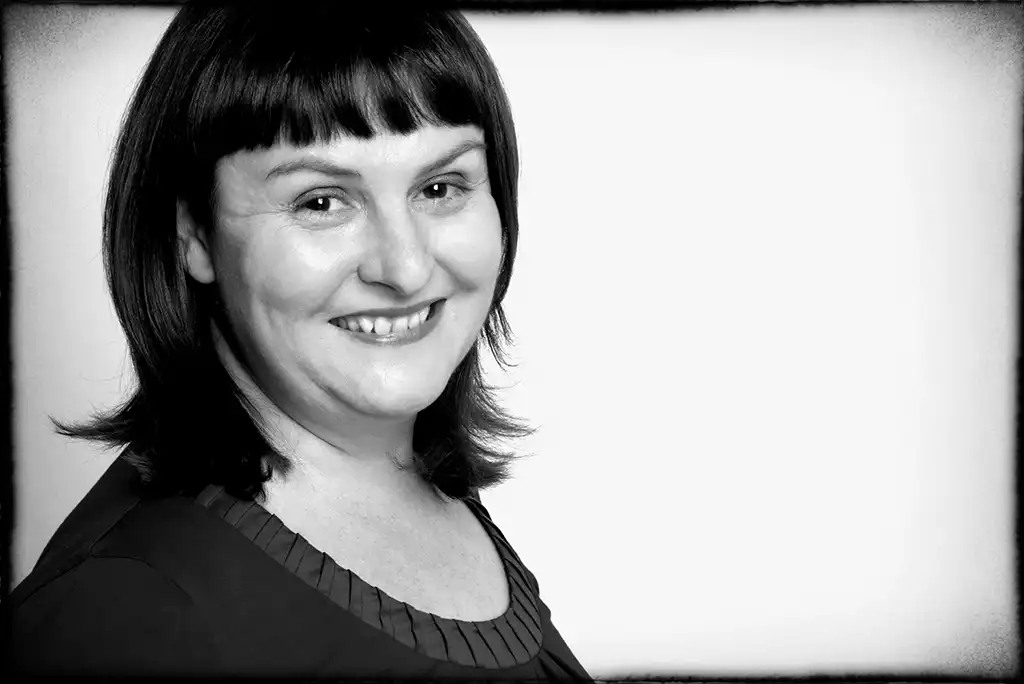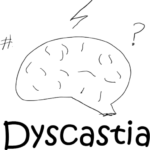Watch episode 14 on YouTube
About Liana McCurry

Liana McCurry is a primary school educator who is passionate about improving learning outcomes for students in the area of maths. She teaches using an Explicit Direct Instruction and multisensory approach, which has seen dramatic improvements in student understanding of mathematical concepts and student achievement. Concepts are taught through small, scaffolded steps based on an I Do, We Do, You Do approach ensuring success for all students. In addition, interleaved practice is used where concepts studied are regularly reviewed, which supports students in retaining knowledge and making connections between concepts which deepens their understanding.
Liana holds a Bachelor of Arts (Communication Studies) and a Bachelor of Education (Junior Primary/Primary) from the University of South Australia. Wanting to gain a further understanding of best practice in delivering maths instruction to ensure success for all and improve student understanding, Liana completed a Master of Education in 2018.
Liana McCurry was awarded Public Education SA’s Primary School Teacher of the Year in 2021 for her work in improving student outcomes in maths. She was also a finalist in the 2022 SA Premier’s Excellence Awards. Following these awards, Liana was invited to present at a Sharing Best Practice conference about her approach to teaching maths in the primary classroom. This conference was attended by a range of leaders and educators, and her presentation received extremely positive feedback.
The Churchill Fellowship project will investigate practices used in teaching mathematics to primary school students. The focus will be on countries that have performed well in the Programme for International Student Assessment (PISA). The PISA is an assessment undertaken by a range of 15-year-old students across 80 countries to measure their ability to use their reading, mathematics and science knowledge to meet real-life challenges.
Liana’s goal is to develop teacher capacity and knowledge to ensure that primary school mathematics is being delivered following evidence-based best practices to enable success for all students.
Liana's Maths scope, sequence and content breakdown K-6.
Liana has been kind enough to share her scope, sequence and content breakdown for teaching maths. You can download it here: Liana’s Maths scope, sequence and content breakdown R-6.
Show notes
During the episode, we mention a few things that may not be familiar to every listener. Here are some links that might help:
Liania’s Churchill Fellowship project: https://www.churchilltrust.com.au/fellow/liana-mccurry-sa-2022/
The Matthew effect:
“In education, the term “Matthew effect” has been adopted by psychologist Keith Stanovich and popularised by education theorist Anthony Kelly to describe a phenomenon observed in research on how new readers acquire the skills to read. Effectively, early success in acquiring reading skills usually leads to later successes in reading as the learner grows, while failing to learn to read before the third or fourth year of schooling may be indicative of lifelong problems in learning new skills.” https://en.wikipedia.org/wiki/Matthew_effect
Constructivism:
https://en.wikipedia.org/wiki/Constructivism_(philosophy_of_education)#Criticism_of_discovery-based_teaching_techniques

More links and resources from Liana - thank you!
Liana’s Maths scope, sequence and content breakdown K-6.
Liana has been kind enough to share her scope, sequence and content breakdown for teaching maths. You can download it here: Liana’s Maths scope, sequence and content breakdown R-6.
Useful Websites
- Resources related to The Science of Math
- Maths Dictionary with kid-friendly definitions
- Ochre Education
- Dr Paul Swan
- Links to webinars related to Math (login needed but it’s free to sign up)
- Steve Wyborney’s Blog: I’m on a Learning Mission. Amazing free resources – highly recommend: *Esti-Mysteries *Splat
- White Rose Maths
- Which one doesn’t belong?
- Videos on teaching the Bar Model for worded questions.
- https://www.mashupmath.com/
- Online manipulatives
Facebook Pages and groups
- Science of Math
- Sharing best practice
- SA branch Think Forward Educators
- Reading Science in Schools
- Hansberry Educational Consulting
Podcasts
- Mr Barton Maths Podcast
- Education Research Reading Room (ERRR) with Ollie Lovell (Notable episode: #077 Ben Jensen on the Importance of Curriculum)
- Knowledge for Teachers Podcast (Notable episode: #09 – Karen Tzanetopoulos on the Science of Math Learning in Research and Practice)
Manipulatives
- Teachables Eco-Wood Coloured Rods These are the manipulatives we have bought for school.
- Orton-Gillingham maths manipulatives
- Maths Australia manipulatives
Books
- How Children Learn Math: The Science of Math Learning in Research and Practice Nancy Krasa, Karen Tzanetopoulos, Colleen Maas
- The Number Sense: How the Mind Creates Mathematics Stanislas Dehaene
- The Trouble With Maths: A Practical Guide to Helping Learners with Numeracy Difficulties, Steve Chinn
- More Trouble with Maths: A complete manual to identifying and diagnosing mathematical difficulties. Steve Chinn
- Primary and Middle Years Mathematics: Teaching Developmentally John Van de Walle, Karen Karp
- Teaching Student-Centred Mathematics Developmentally Appropriate Instruction John Van de Walle, Karen Karp
Videos and webinars
Lorraine Hammond – Explicit Direct Instruction: Why What We Say Matters
David Morkunas – Spaced, Interleaved and Retrieval Practice: The Key to Long Term Knowledge Retention
Steven Capp – Building Teacher Efficacy Towards Evidence Informed Practice
David Morkunas – Grade 4 Maths Review Test Video
The demo video of Multiplying Fractions with an Area Model - Mentioned by Liana
Maths games and activities to do at home
Comments and questions are welcome!
We would love to hear about your experienced with teaching or learning maths! Please feel free to leave a comment or question below.







12 Responses
I really enjoyed your podcast on maths and learning difficulties. As a grade 6 teacher in the United States, I have had very little training on learning difficulties in general and none on dyscalculia/dyslexia. So thank you for the ideas and structure.
I was wondering about the video mentioned in the podcast using two sided discs to teach/reinforce fraction instruction. Do you know where I would locate it?
Thank you again,
Maria Searles
Hi Maria. Thanks for the feedback! I’ll track that down for you and put it in the show notes. Cheers, Michael.
Hi again Maria. I’ve updated the notes to include the video (thanks again to Liana!). Here is a direct link. Multiplying Fractions with an Area Model
Hey Michael! During the Podcadyou talked about assessments you had found. I was driving and couldn’t write it down! Could you please tell me again what it was? Much appreciated!
Hi Kylie, The book I mentioned is More Trouble With Maths.
Thank you Michael!
Any time!
Absolutely loved this episode!! Lots of brain explosions. Would love to see some instructional videos of how to use the manipulatives to introduce concepts.
Many thanks Jeremy. That’s a great idea, I’ll see if I can talk Liana into it :-).
AMAZING episode Bill, Mike & Liana. As someone who did most of my schooling in Singapore and have been a teacher in Australia for more than 10 years and now run my own evidence based tutoring business. This is SO interesting! So much of what was said resonated with me and having experienced both a more explicit system (Singapore) & a more fluid system (Australia), I can definitely see the gaps. The lie of autonomy is absolutely true! I agree, this is too important to not pay attention to! I could go on and on about this but thank you for this fabulous episode!
Our pleasure Eliza. Glad to know it’s been useful, thanks for the feedback!